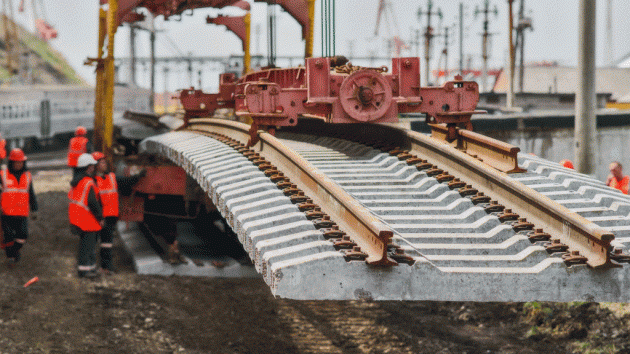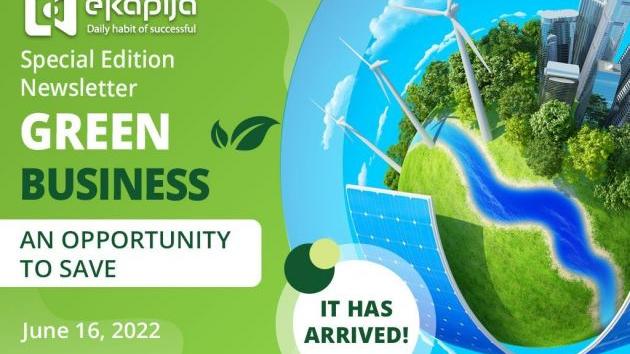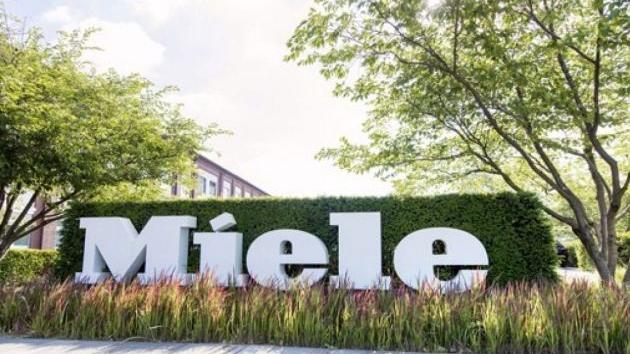Nenad Gulevski, Sales Director West Balkans, Tetra Pak ŌĆō We Create the Most Sustainable Food Packaging in the World
 Wednesday, 15.06.2022.
Wednesday, 15.06.2022.
 17:47
17:47

We talked about this, but also about the innovations and activities they implement in Serbia, as well as the challenges in the food industry, with Nenad Gulevski, Sales Director for West Balkans.
How important is sustainability for Tetra Pak? How does Tetra Pak apply environmental principles in its business?
ŌĆō We recognise that our future success depends on our ability to provide safe and sustainable products to consumers, and we commit to being socially responsible in the way that we operate across the value chain. At Tetra Pak, our approach to sustainability is shaped by our brand promise: PROTECTS WHATŌĆÖS GOODŌäó. We bring this promise to life by committing to protect food, to protect people and to protect our planet. We recognize that we can only create a more sustainable future by addressing the interconnected nature of the environmental, social and economic challenges we all face. To tackle different challenges, we keep securing the continuity of packaging, technologies, and services supply for customers to respond to the growing demands of the market.
At the global level, you cooperate with startups and educational institutions in the development of innovations aimed at reducing waste and the use of renewable materials. Is the key to the environmental challenges that the planet is facing precisely in the cooperation of large companies, science and technology startups?
ŌĆō In an attempt to address challenges around food and drive innovation, we need to question status quo and keep pushing our boundaries, working together with external partners who bring fresh ideas and perspectives to the table. At Tetra Pak, we are continuously exploring new concepts, new food categories, such as plant-based food, new food ingredients, like enzymes that reduce food waste, or new production methods that sit outside of our ŌĆścoreŌĆÖ competencies. As an example, we have conducted over 300 screenings that resulted in more than 10 pilot projects to be researched. We encourage start-ups to come to us with their ideas as well as to join cross-industry teams to explore opportunities. We recognize the value in coming together with experts across an ecosystem in food, science, and engineering to help identify new solutions and address challenges intensified by the changes in the food supply chain.
Would you single out any project you are currently working on?
ŌĆō We always think about the whole ecosystem of our stakeholders and remain ŌĆśalertŌĆÖ to all the market signals and constantly listen the voice of customers and consumers to utilize all the trends and requests they are guided by. As most recent and most prominent examples, IŌĆÖd like to mention two projects we are currently working on: tethered caps and fibre-based barrier for our packages. Tethered caps are our answer to preventing litter and also enabling our customers who sell their products on the territory of the European Union to meet the objectives of Single Used Plastics Directive by implementing tethered caps and lids ŌĆō designed to remain attached to containers ŌĆō much before the final deadline in July 2024. They also help reduce the carbon footprint of the carton when they are chosen by food manufacturers as plant-based options, made from polymers derived from responsibly sourced sugarcane, thereby increasing the renewable content of the package. We are planning to equip approximately 300 packaging lines with tethered caps in Eastern Europe by the end of 2022. In this way we hope to help the food and beverage industry come on a fast track to accelerate the transition to a low carbon circular economy. Another project we are currently working on is fibre-based barrier instead of the aluminium barrier. The aluminium layer currently used in food carton packages plays a critical role in ensuring food safety; and even though it is thinner than a human hair, it contributes to a third of the green-house gas emissions linked to base materials used by Tetra Pak. Following the successful completion of a 15-month commercial technology validation of a polymer-based barrier replacing the aluminium layer, we are now moving to the next level of development - testing a fibre-based barrier that is a first within food carton packages distributed under ambient (non-chilled) conditions. This step marks yet another breakthrough in our long-term roadmap towards developing an aseptic package that is fully renewable, fully recyclable and carbon-neutral.

What challenges do you face in order to reconcile the desire for environmental protection, product quality, consumer needs? How difficult is it to make packaging that will meet all safety and aesthetic criteria, while reducing waste and respecting environmental principles?
ŌĆō The concern for the natural environment and galloping interest of consumers and food companies in sustainability-related matters is, above all, a great motivator for the entire packaging industry. For us, the sustainability focus encompasses our entire value chain Consumers rightly expect food to be safe ŌĆō and so do distributors, retailers, and legislators. ItŌĆÖs not a challenge, itŌĆÖs the reality. We therefore also work on helping our customers to be in full control of production, from the sourcing of raw materials to the retailerŌĆÖs shelf. Based on our experience and research, we also provide them with support to deploy or in some cases building their sustainability strategies. This means selecting packages with bio-based polymers which improves their carbon footprint. In addition, we are supporting our customers with new generation of machines which help them to decrease waste and consumption of water and energy. Also, as already mentioned, through sustainable innovations like paper straws or tethered closures we are supporting our customers to follow European trends and legislative and keep them relevant in Export markets. Our care for food safety commits us to maintaining the highest standards of safety and achieving full product traceability through the entire food processing and packaging value chain. Only on this way, by listening and answering to all needs and requests from the consumers, communities, and customers, we may ensure that the food industry will continue its development in a sustainable manner.
How important is it to consumers that companies operate on environmental principles?
ŌĆō Global Consumer research* Tetra Pak did by the end of last year, where Serbia was included as well, states that concerns around environmental issues are growing. 76% of respondents in Serbia say they are concerned about environmental issues. Main drivers of environmental actions of consumers in Serbia are sense of responsibility to preserve the environment for the future generations and willingness to do something good. Main barrier to buy product in environmentally sound packaging is actually lack of those products available to purchase. On the other side, environmentally sound package impacts positively on product value and will increase on brand intention to buy. We note that Serbian consumers expect government and companies to take prompt actions when it comes to environmental and sustainability, and we are ready to help there, both to the state, our customers and partners, as well as local communities.
*Sustainable Packaging Consumer Research 2021, Global Report
What concrete actions are you taking in Serbia regarding sustainability?
ŌĆō Through our work and investment in sustainability, we are able to help drive a low-carbon circular-economy in Serbia and introduce environmentally-sound products and solutions to the local and regional market. This happens in several ways. First of all, we offer and excel at product innovations, such as renewable packages, consisting of even up to 90% renewable materials (meaning paper/cellulose and plastic of renewable origin, made from sugar cane). We have also introduced a paper straw solution to be made available for wider use by the whole industry. Secondly, we have been creating and investing in used beverage carton recycling infrastructures in Serbia, which has increased our recycling levels. Finally, we see the value of investing in consumer awareness by conducting educational activities aimed at proper waste segregation and management in municipalities. We also continuously work on internal improvements, so our Gornji Milanovac factory recently obtained renewable electricity certificates that account for 100% of its electricity consumption, in this way contributing to local and global environment protection.
What are your plans globally and in Serbia? What kind of packaging should we expect in the future?
ŌĆō Our general plans are comprehensive ŌĆō from delivering the world`s most sustainable food package, made solely of responsibly sourced renewable or recycled materials, fully recyclable and carbon-neutral, to working on reducing greenhouse gas emissions, plastic waste in our environment and reducing food waste. For example, one of our goals in Europe is to collect 90% of all used beverage cartons waste and recycle 70% of it by 2030. Similar goals are also shared for Serbian market. We are glad to note that in Serbia such values as food safety and growing awareness and care for the natural environment are visibly gaining in importance. This is very rewarding, as sustainability has long been at the heart of our business strategy and operations globally and locally. It also translates into a key priority in our daily activities with customers to better meet the needs of end-consumers. We are actively promoting and advocating on legislation and implementation of EPR (Extended Producer Responsibility) as best practice from developed markets. The aim is to collect and recycle 100% of waste as only way to have clean environment for future generations and sustainable business.
 Tetra pak Production doo Beograd
Tetra pak Production doo Beograd
Na┼Ī izbor
Most Important News
06.04.2024. | Agriculture
Preconditions for Placement of Fresh Blueberries and Dried Plums in Chinese Market Secured

16.04.2024. | News
Jovan Ciric, Leasing Director Retail MPC Properties ŌĆō MPC Echo symbolizes our desire for good ideas and innovative endeavors to spread freely and bring about positive changes

16.04.2024. | News
10.04.2024. | Finance, IT, Telecommunications, Tourism, Sports, Culture
Creative Industry ŌĆō What This Serbian Economy Sector Worth EUR 2 Billion Encompasses

10.04.2024. | Finance, IT, Telecommunications, Tourism, Sports, Culture
24.04.2024. | Construction, Healthcare
Price of construction of Tirsova 2 increases to EUR 141.6 million ŌĆō Contract awarded to consortium of 10 companies

24.04.2024. | Construction, Healthcare
16.04.2024. | News
Economy Fair in Mostar opens ŌĆō 26 companies from Serbia exhibiting

16.04.2024. | News
24.04.2024. | Construction, Transport
Dates of publishing of tenders for construction of three sections of fast railroad from Belgrade to Nis known

24.04.2024. | Construction, Transport


 Izdanje Srbija
Izdanje Srbija Serbische Ausgabe
Serbische Ausgabe Izdanje BiH
Izdanje BiH Izdanje Crna Gora
Izdanje Crna Gora


 News
News









